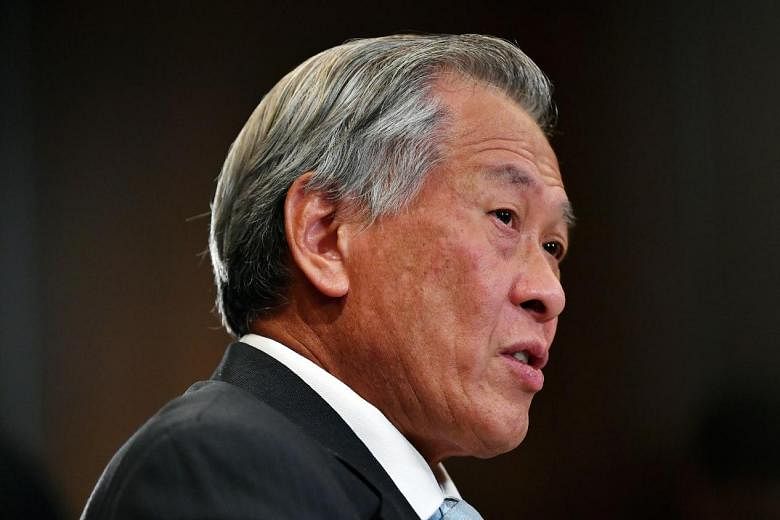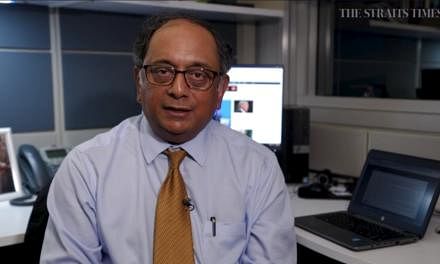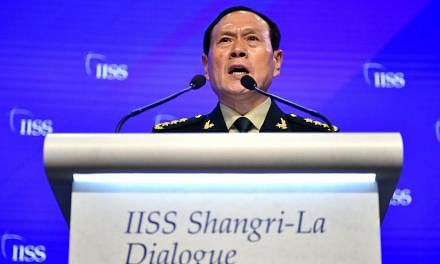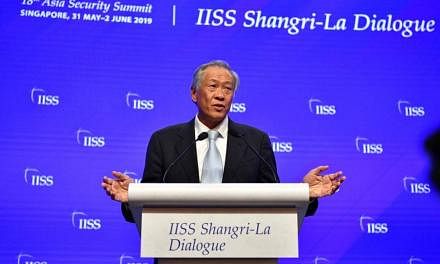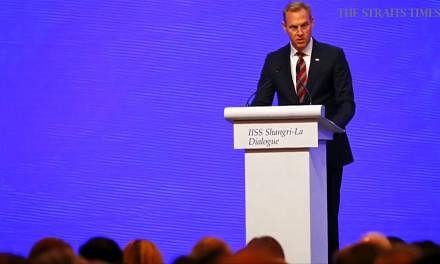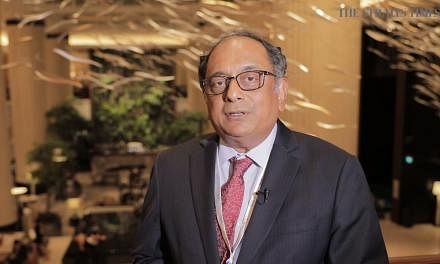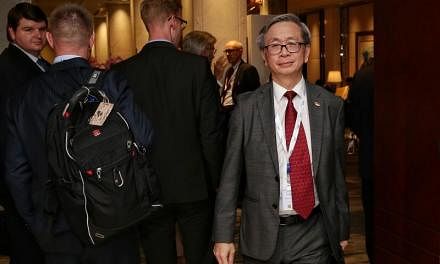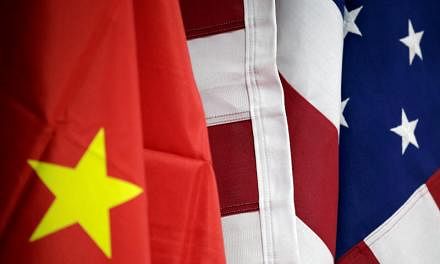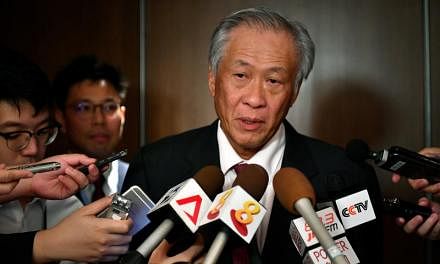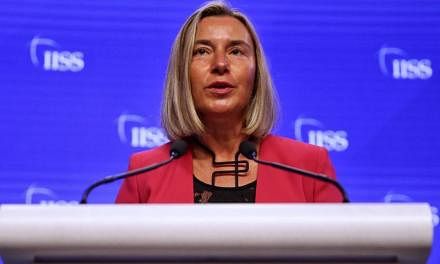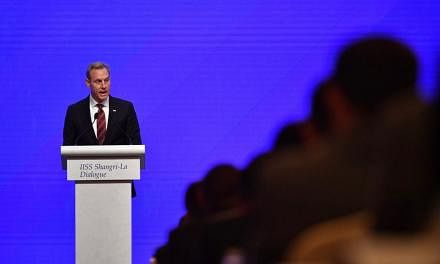SINGAPORE - Shifting economic dependencies could lead to parallel blocs with strong divisions between them, setting countries up for conflict, warned Defence Minister Ng Eng Hen on Sunday (June 2).
Both World War I and the Cold War were the result of alliances that forced nations to take sides, he said. "So we're very clear what's at stake and we want to maintain the current system."
"We still believe that multilateral trade arrangements are not only important for economic dependencies and for economic health, but indeed, for security. Because if I trade a lot with you, it's quite hard for me to fight with you," he said, responding to a question from the audience at the final session of the Shangri-La Dialogue, an annual security forum which ended on Sunday (June 2).
Other questions asked included how Singapore could navigate the differences between the United States and China, and if a shift of economic dependencies from the US and China to other countries could dampen the power rivalry.
Together with Indonesia's Defence Minister, General (Ret) Ryamizard Ryacudu, and New Zealand's Defence, Minister, Mr Ron Mark, Dr Ng spoke on the topic "Ensuring a Resilient and Stable Region".
He told the audience of military chiefs, officers, and defence academics that there was nothing wrong with shifting economic dependencies as a "tactical step". It might even be a good thing if, for example, the European Union decides that US terms are too onerous and increases its trade with Japan or China, he said.
"But sooner or later, you're going to have lines that criss-cross less and less. Whether it's technology, whether it's trade, whether it's security, and once you have two or three blocs with parallel lines, and strong divisions between them, you're set up for conflict," he said.
Elaborating on the same issue later, Dr Ng said that to Singapore, inter-dependency is not only good economically, but also good for security, as the price of conflict would be higher for mutually dependent countries.
"If we live on the same row, and there's a common corridor between us, we're going to think very hard before we start throwing things at one another.
"But if you're divided by a wall, and insulated from some of the harm when you have conflict, then you think less," he told reporters after the session.
Drawing an example from WWI, he said that because there were alliances and people stuck to them, countries found themselves in unenviable positions.
"Are we overreacting? Well, each country can assess it on its own, but we see the danger of that, and I don't think that that scenario is so minuscule that it won't happen," he said.
For a small state to assert its rights requires acceptance by a larger power, he said.
"And Singapore not for one moment takes this as a given. We think it's very hard work to maintain the state of affairs.
"And I think we have that DNA because... Mr Lee Kuan Yew (was) someone who was described as the ultimate realist and the ultimate optimist rolled into one," he said, adding that he had "no cognitive dissonance between ideals that were in contradiction".
The presence of US Acting Defence Secretary Patrick Shanahan and China's Defence Minister Wei Fenghe at this year's Shangri-La Dialogue was critical, and most delegates agreed that "at the very least, there was presence", said Dr Ng.
"Almost all the people I spoke to… were very thankful that both came, and also expressed the hope that both would continue to come to every Shangri-La Dialogue," he said.
He added that Mr Shanahan and General Wei, in their respective speeches, did not skirt around the difficult issues between the US and China. "They were direct speeches… but I think I would rather have that than just motherhood statements and general statements that didn't address issues," said Dr Ng.
